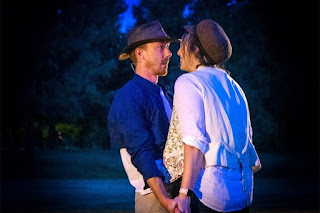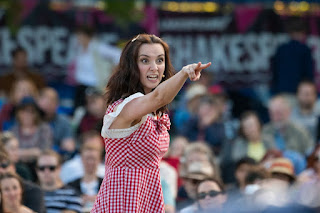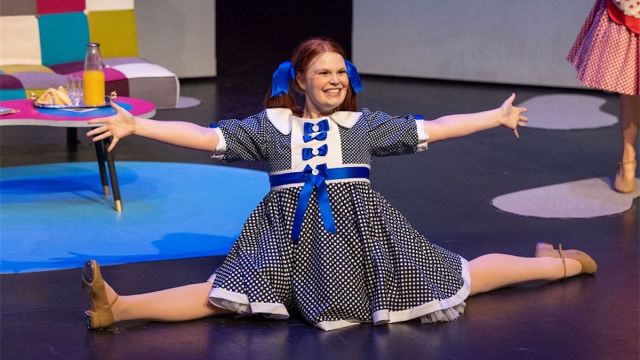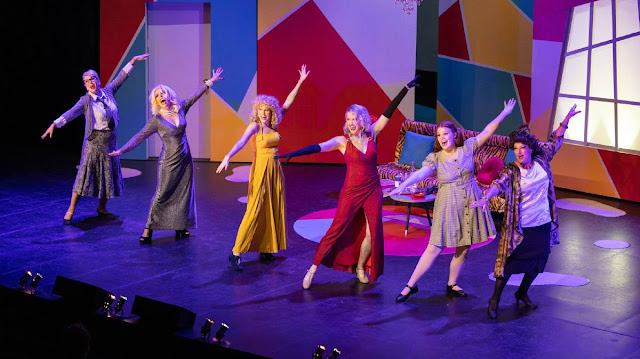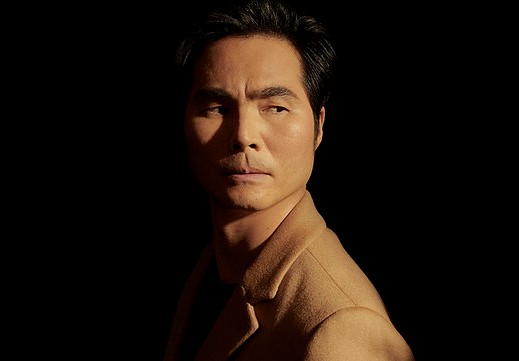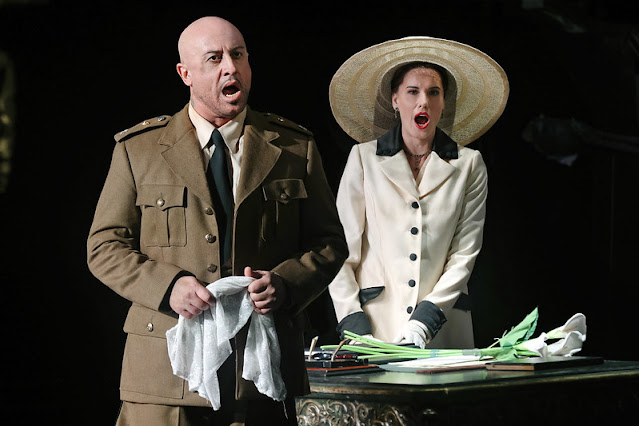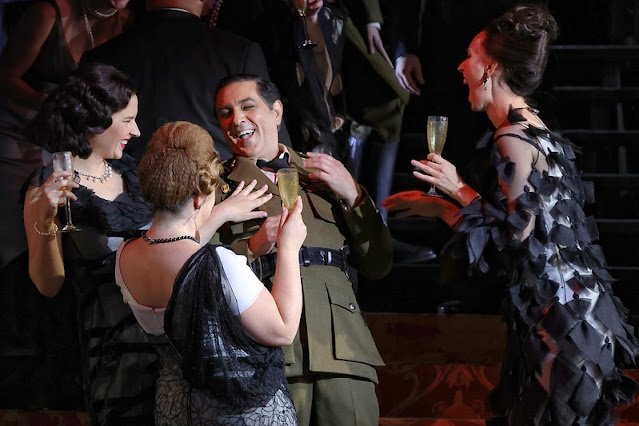Music and lyrics by Casey Bennetto
Directed by Sarah Hull
Queanbeyan Players
Belconnen Community
Theatre to 6 March
Reviewed by Len Power
25 February 2022
A sung-through musical with music and lyrics by Casey Bennetto, its revue-like structure illustrates the political career of Paul Keating, Australia’s Prime Minister between 1991 and 1996.
Originating at a Melbourne Comedy Festival in 2005, it’s tongue-in-cheek, larrikin approach to the story is presented in a mish-mash of musical styles including rock, rap, jazz, hip-hop, tango and everything else you can think of.
Various characters in the story, like John Howard, Alexander Downer, Gareth Evans and John Hewson, are presented as caricatures, which add to the fun. Keating’s character is fairly straight but with a knowing wink to the audience.
Director, Sarah Hull, has produced a bright and breezy production in a simple setting with the small band onstage throughout the action. Musical director, Jenna Hinton, has achieved a high standard of musical performance from the cast and band members. She also plays drums for the show.
The young cast are clearly having a great time performing this show. As the tone of the piece is satire, the cast members do not have to look exactly like the characters they’re portraying. Well-chosen wigs, eyebrows, fishnets and distinctive eye-wear take care of that aspect very well.
 |
| Steven O'Mara centre stage as Keating |
As Keating, Steven O’Mara has presence, a fine sense of the satire in his role and sings well. There is also good work by Matt Greenwood in a deliciously wicked performance as John Howard and Anthony Swadling as a classic Bob Hawke.
Zyl Hovenga-Wauchope uses his strong voice and presence to great effect in his songs ‘The Beginning of the End’ and in the duet ‘Heavens, Mr Evans’, with Alissa Pearson, who is also in fine voice as a sexy Cheryl Kernott. Everyone else in the twelve member cast gets their moment to shine.
David Santolin, the choreographer, has provided dances that appropriately enhance the mood and intention of the songs. The cast attack the dances with energy and tall seem to be having a great time performing them.
Sound balance, particularly in the first act, needs more attention. The satire in this show demands that the audience be able to hear the lyrics clearly. The singers were often drowned out by the band.
This is a good production of a rare home-grown musical. Queanbeyan Players are to be congratulated for having a go at something different and less main-stream. It deserves to be a success.
Photo by Michael
Moore



